Filter by
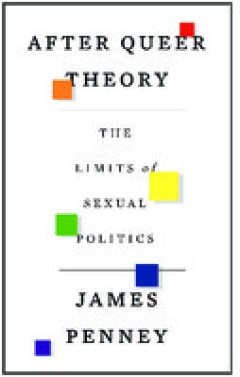
After Queer Theory
After Queer Theory makes the provocative claim that queer theory has run its course, made obsolete by the elaboration of its own logic within capitalism. James Penney argues that far from signalling the end of anti-homophobic criticism, however, the end of queer presents the occasion to rethink the relation between sexuality and politics. Through a critical return to Marxism and psychoanalysis …
- Edition
- -
- ISBN/ISSN
- 9781849649858
- Collation
- -
- Series Title
- -
- Call Number
- -

A World without Capitalism?
- Edition
- -
- ISBN/ISSN
- 9781000484434
- Collation
- oer.unej.ac.id
- Series Title
- -
- Call Number
- -
- Edition
- -
- ISBN/ISSN
- 9781000484434
- Collation
- oer.unej.ac.id
- Series Title
- -
- Call Number
- -
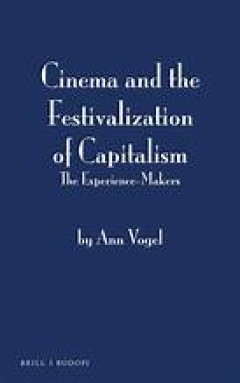
Cinema and the Festivalization of Capitalism
Film festivals around the world are in the business of making experiences for audiences, elites, industry, professionals, and even future cultural workers. Cinema and the Festivalization of Capitalism explains why these non-profit organizations work as they do: by attracting people who work for free, while appealing to businesses and policymakers as a cheap means to illuminate the creative city…
- Edition
- -
- ISBN/ISSN
- 978-90-04-52396-8
- Collation
- oer.unej.ac.id
- Series Title
- Contemporary Cinema, Volume: 9
- Call Number
- -
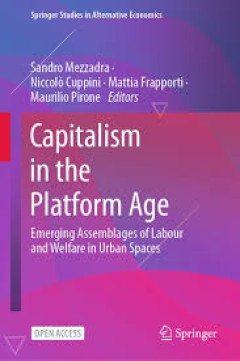
Capitalism in the Platform Age
This book series offers an outlet for cutting-edge research in alternative, heterodox and pluralist economics. It features scholarly studies on various schools of thought beyond the neo-classical orthodoxy, including Austrian, Post Keynesian, Sraffian, Marxian, Georgist, Institutional-evolutionary, as well as feminist, radical, social, green, and ecological economics. It aims to promote…
- Edition
- -
- ISBN/ISSN
- 9783031491474
- Collation
- VI, 371
- Series Title
- -
- Call Number
- -
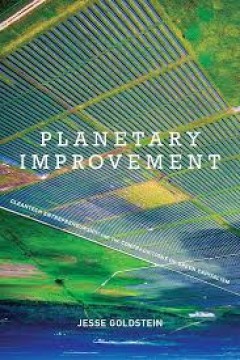
Planetary improvement :cleantech entrepreneurship and the contradictions of g…
An examination of clean technology entrepreneurship finds that ""green capitalism"" is more capitalist than green.OCLC-licensed vendor bibliographic record.
- Edition
- -
- ISBN/ISSN
- 9780262346139
- Collation
- 1 online resource
- Series Title
- -
- Call Number
- -
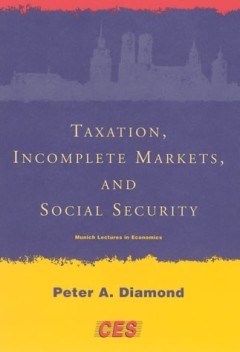
Taxation, Incomplete Markets, and Social Security
In this book, Peter Diamond analyzes social security as a particular example of optimal taxation theory. Assuming a world of incomplete markets and asymmetric information, he uses a variety of simple models to illuminate the economic forces that bear on specific social security policy issues. The focus is on the degree of progressivity desirable in social security and the design of incentives t…
- Edition
- -
- ISBN/ISSN
- 9780262271684
- Collation
- 1 online resource (xviii, 160 pages).
- Series Title
- -
- Call Number
- -

Poland's jump to the market economy
an insider's analysis of the political events and economic strategy behind the country's swift transition to capitalism and democracy In Poland's jump to the Market Economy , Jeffrey Sachs provides an insider's analysis of the political events and economic strategy behind the country's swift transition to capitalism and democracy. The greatest challenges to economic reform, Sachs points out, ha…
- Edition
- -
- ISBN/ISSN
- 9780262282796
- Collation
- 1 online resource (xv, 126 pages) :illustrations.
- Series Title
- -
- Call Number
- -
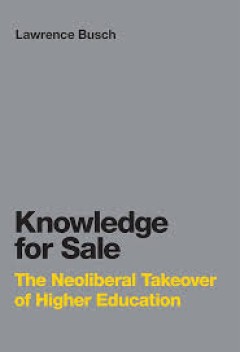
Knowledge for sale :the neoliberal takeover of higher education
How free-market fundamentalists have shifted the focus of higher education to competition, metrics, consumer demand, and return on investment, and why we should change this.A new philosophy of higher education has taken hold in institutions around the world. Its supporters disavow the pursuit of knowledge for its own sake and argue that the only knowledge worth pursuing is that with more or les…
- Edition
- First English language edition.
- ISBN/ISSN
- 9780262339452
- Collation
- 1 online resource (xviii, 155 pages cm.)
- Series Title
- -
- Call Number
- -

Assetization :turning things into assets in technoscientific capitalism
"This is a professional edited collection for the Inside Technology series looking at what the editors call assetization. They ask: what lies in the wake of commodification? How should we characterize and analyze technoscientific capitalism in the era of Uber and Airbnb, the business model sorcery of giants like Google and Genentech, rising immaterial and cognitive labor productivity represente…
- Edition
- -
- ISBN/ISSN
- 9780262359023
- Collation
- 1 online resource.
- Series Title
- -
- Call Number
- -

Market institutions in Sub-Saharan Africa :theory and evidence
An analysis of recent data on the economic behavior of market institutions in sub-Saharan Africa, with implications for future research and current policy.In Market Institutions in Sub-Saharan Africa, Marcel Fafchamps synthesizes the results of recent surveys of indigenous market institutions in twelve countries, including Benin, Ghana, Kenya, Madagascar, Malawi, and Zimbabwe, and presents find…
- Edition
- -
- ISBN/ISSN
- 9780262272452
- Collation
- 1 online resource (xx, 521 pages) :illustrations.
- Series Title
- -
- Call Number
- -
 Computer Science, Information & General Works
Computer Science, Information & General Works  Philosophy & Psychology
Philosophy & Psychology  Religion
Religion  Social Sciences
Social Sciences  Language
Language  Pure Science
Pure Science  Applied Sciences
Applied Sciences  Art & Recreation
Art & Recreation  Literature
Literature  History & Geography
History & Geography